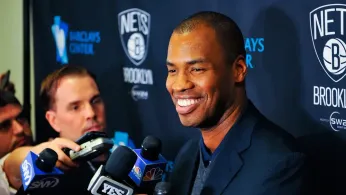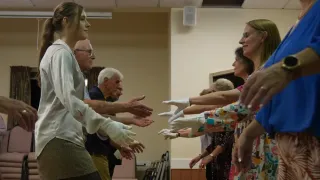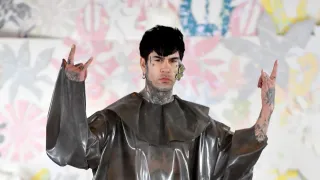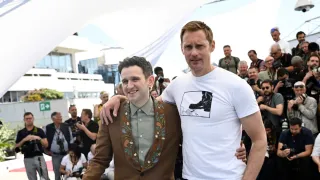
4 hours ago
NBA Trailblazer Jason Collins Undergoes Brain Tumor Treatment; Queer Fans Rally with Support
READ TIME: 3 MIN.
Retired NBA center Jason Collins, who made history in 2013 as the first active player in a major North American men’s professional sports league to come out as gay, is now facing a critical health battle. On Thursday, the NBA, on behalf of Collins and his family, announced that the 46-year-old is undergoing treatment for a brain tumor. The statement conveyed appreciation for the public’s support and requested privacy as Collins and his loved ones focus on his health and well-being .
Collins, a Harvard-Westlake and Stanford standout who went on to a 13-year NBA career, was a respected figure on and off the court. His 2013 coming-out moment, published in Sports Illustrated, was a turning point for queer visibility in sports, inspiring countless athletes and fans to embrace their true selves .
As news of Collins’s diagnosis spread, queer fans and organizations quickly mobilized to express their support. Social media platforms lit up with messages of encouragement, many using the hashtag #StandWithJason to share stories of how Collins’s openness helped them find acceptance in their own lives. The Brooklyn Nets, one of Collins’s former teams, posted, “Sending our love and support to @jasoncollins98 and his family,” reflecting the wider basketball community’s sentiments .
Athlete Ally, GLAAD, and other queer advocacy groups released statements emphasizing that Collins’s courage had “opened doors for so many,” and that the community stands with him during this challenging time. Fans recounted the significance of seeing an openly gay man compete at the highest level of basketball, a moment that provided hope and validation for those who had long felt excluded from the world of sports .
“Jason gave us the freedom to imagine ourselves in places we’d been told we didn’t belong,” said a fan post widely shared on Instagram. “We’re rallying for him now, just as he showed up for us.”
Collins’s impact extends far beyond his on-court statistics. Selected 18th overall in the 2001 NBA draft, he played for the New Jersey Nets, Memphis Grizzlies, Minnesota Timberwolves, Atlanta Hawks, Boston Celtics, and Washington Wizards, before returning to the Nets in Brooklyn for his final season. He retired in 2014 and has since worked as an NBA Cares ambassador, focusing on community outreach and inclusion efforts .
His 2013 Sports Illustrated essay resonated worldwide, as Collins described the relief and strength he felt after coming out. “No one wants to live in fear… Each time I tell another person, I feel stronger and sleep a little more soundly,” he wrote, inspiring a new generation of queer athletes and allies .
Collins’s advocacy has helped lay the groundwork for increased visibility and acceptance of queer people in sports. Organizations such as the NBA have since expanded their outreach and anti-discrimination efforts, citing pioneers like Collins as catalysts for change .
The announcement of Collins’s diagnosis has also sparked dialogue about brain tumor awareness. According to the National Brain Tumor Society, nearly one million Americans are living with a primary brain tumor, highlighting the importance of early detection and support for those affected .
Collins’s family did not disclose details about the type or stage of his tumor, but their statement underscores the need for privacy and compassion. Health experts note that symptoms can be subtle and vary widely, reinforcing the need for regular check-ups and destigmatizing conversations about serious health issues .
Collins and his husband, Brunson Green, who married in May, have received messages from across the sports world and queer community. “Jason’s courage has always been his hallmark,” wrote a spokesperson for the Human Rights Campaign. “We are keeping him in our hearts and fighting alongside him.”






